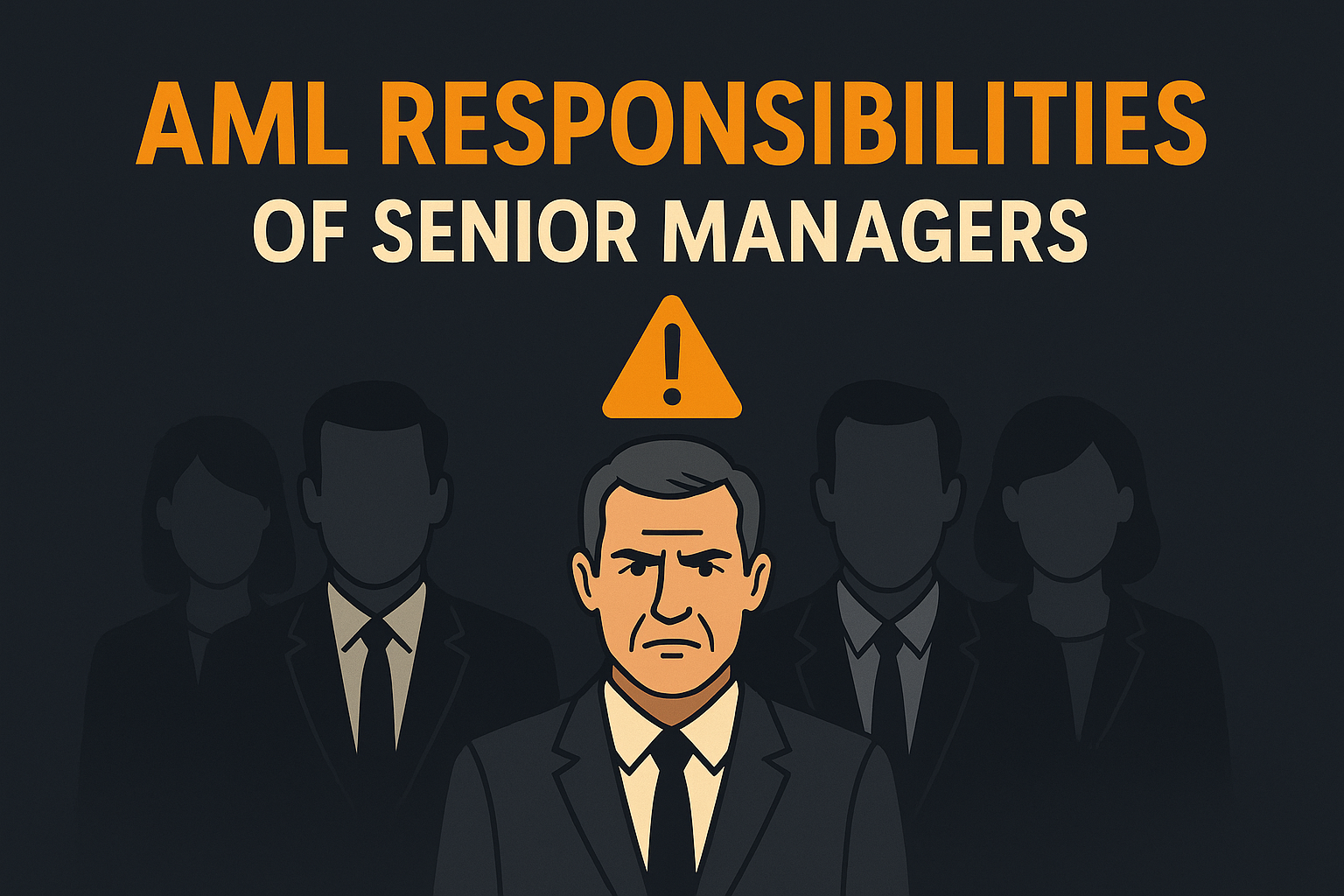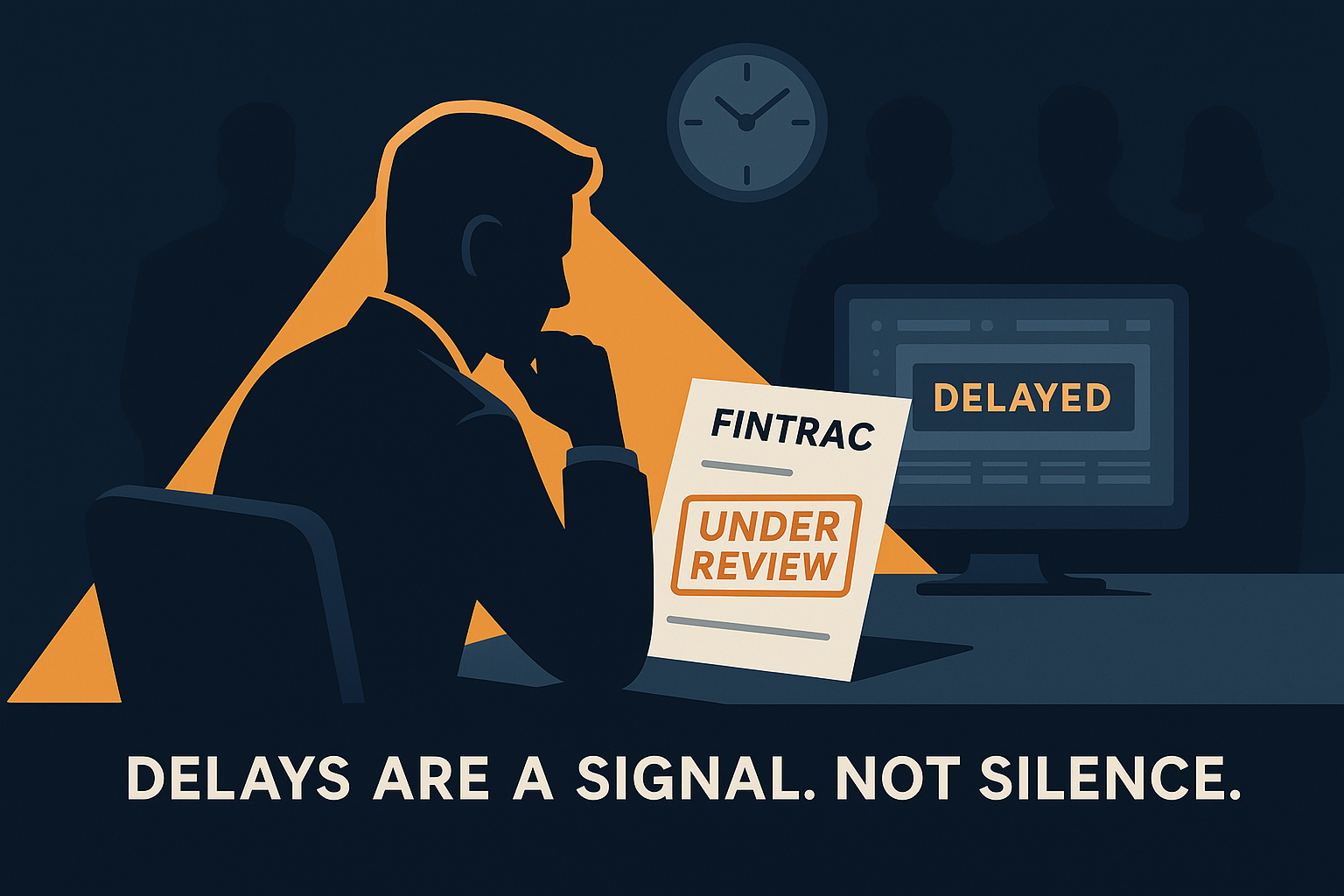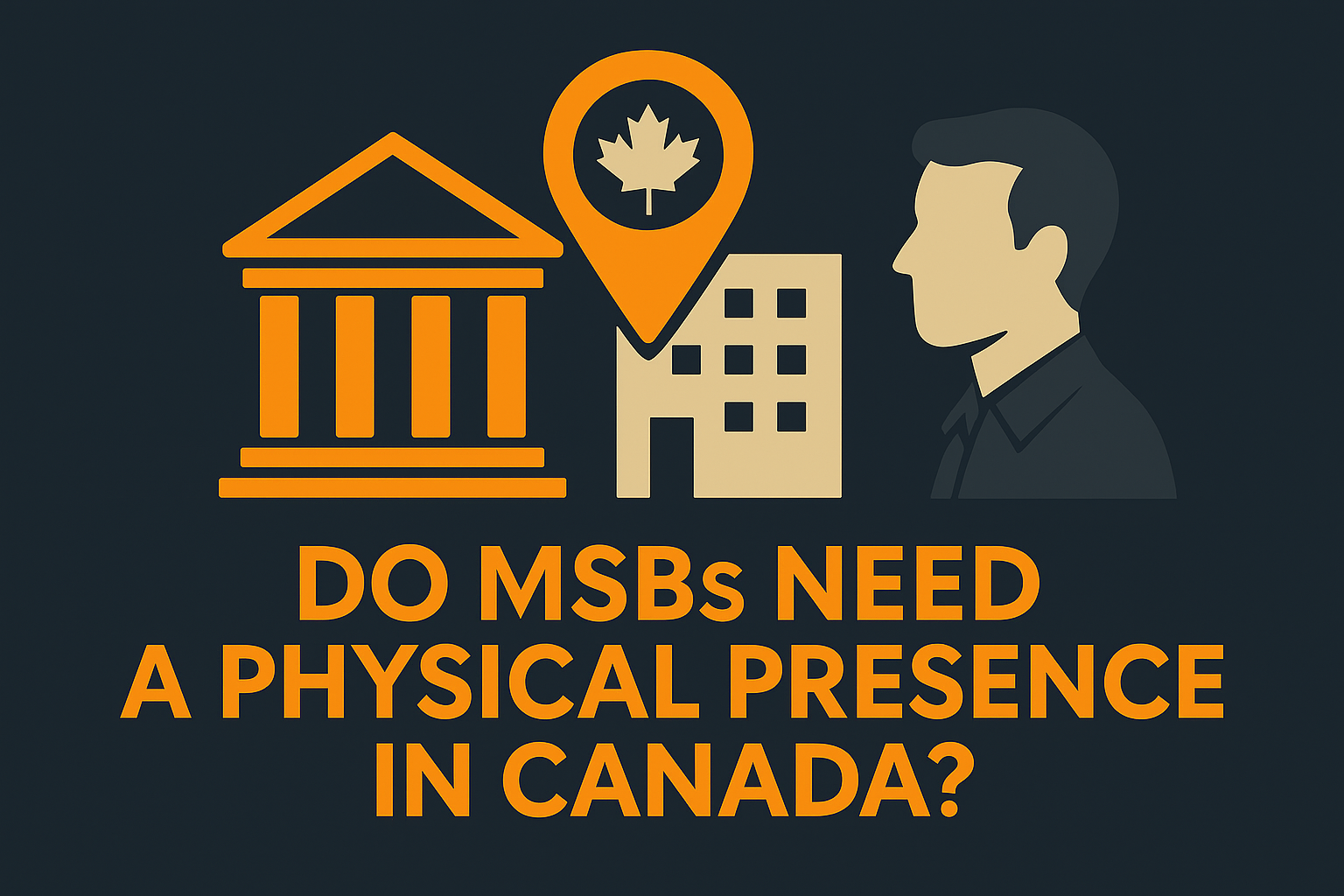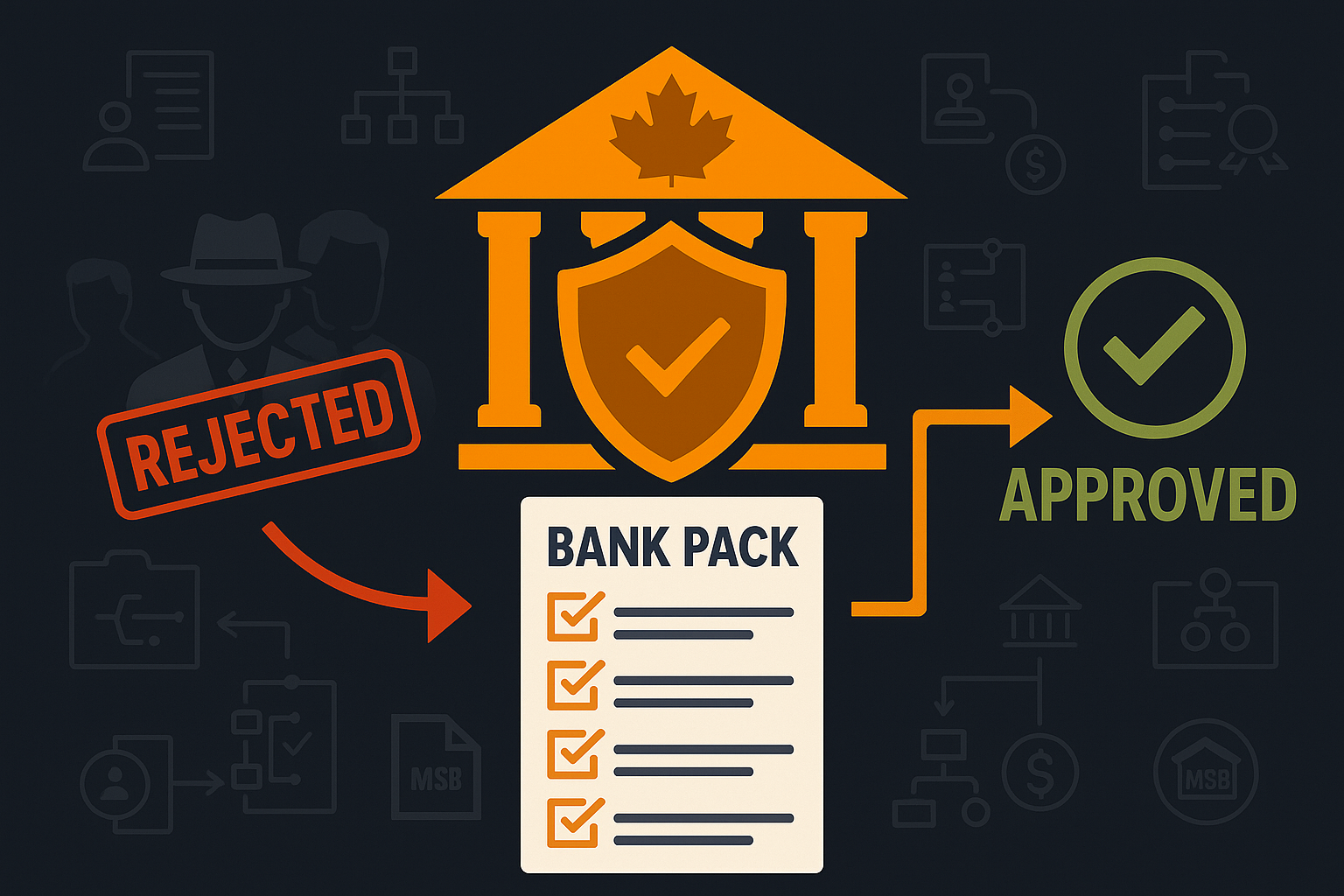Senior managers can't afford to ignore AML/ATF compliance—regulators will hold them personally liable. Learn what Canada’s laws expect from directors, founders, and executives before it’s too late.

Why Senior Managers Can’t Ignore AML/ATF Obligations
What Canadian Law Says About AML Responsibility
PCMLTFA and Director Liability
Senior management is legally responsible for ensuring the organization has a compliant AML program, even if a CAMLO is appointed. Under the Proceeds of Crime (Money Laundering) and Terrorist Financing Act (PCMLTFA), the board and C-suite cannot claim ignorance when facing regulatory scrutiny.
FINTRAC’s Enforcement Outlook
FINTRAC has moved toward naming directors and officers in enforcement actions where there is systemic failure or willful negligence. These cases often involve failures in oversight, risk assessment, or failure to implement corrective action following internal reviews.
Who This Applies To
Key Roles at Risk
-
CEOs and founders
-
CFOs and finance leads
-
Board members
-
General managers of Canadian operations
Foreign-Owned Entities
Foreign companies operating MSBs in Canada or serving Canadian clients, are not exempt. The same responsibilities apply to parent company directors and officers when a Canadian affiliate is under review.
What Are a Senior Manager’s AML/ATF Duties?
Oversight and Accountability
Leading Compliance, Not Just Signing Off
A senior manager’s duty goes beyond approval. They must understand the AML risks the business faces and ensure that the compliance team has adequate authority, budget, and resources.
Example – FINTRAC Penalties for Board Failures
In several recent public notices, FINTRAC outlined cases where directors were held accountable for failing to review the effectiveness of their AML programs or ignoring red flags raised by internal compliance teams.
Policy and Program Duties
Approving AML Policies
Policies and procedures must be reviewed and approved by senior leadership. This includes the AML manual/written compliance program, reporting obligations, escalation protocols, and ongoing training programs.
Understanding the Risk-Based Approach (RBA)
FINTRAC requires that AML programs be tailored to the specific risks of the business and of clients. Senior management must review and understand the institution's risk assessment and ensure it's kept up to date, along with conducting proper due diligences when onboarding clients.
Related: Risk-Based Approach: Why It’s Mandatory for MSBs in Canada
What Happens If Senior Management Fails?
Regulatory Consequences
Fines and Public Notices
FINTRAC can name directors, officers, or owners in its published enforcement actions; potentially damaging reputations and deterring future business partnerships.
Criminal Liability and Reputational Risk
While rare, severe cases of willful blindness or facilitation of financial crime could result in criminal charges. Even without legal proceedings, reputational damage can be irreversible.
Organizational Fallout
Frozen Bank Accounts and Loss of Partnerships
Banks may terminate MSB relationships if the board fails to meet compliance standards. Payment processors and investors may follow.
Remediation Costs and Operational Delays
Companies found in breach may need to conduct expensive remediation projects and suspend operations during reviews.
Related: Regulatory Remediation
How Can Leaders Fulfill Their AML/ATF Obligations?
Build a Culture of Compliance
Tone from the Top
Senior managers set the tone. This means conducting annual program reviews, attending training sessions, and maintaining direct contact with the CAMLO.
Appointing a Qualified CAMLO
Leadership must ensure that the Chief AML Officer (CAMLO) is not just a figurehead. The CAMLO should have relevant experience, adequate support, and independence.
Related: CAMLO/MLRO Services
Conduct Independent Program Testing
Importance of the Effectiveness Review
FINTRAC expects an independent effectiveness review at least every two years. Senior managers must review and sign off on the results and act on any deficiencies.
Related: Effectiveness Review
Documenting Corrective Action
When a review identifies gaps, senior management must ensure remediation is tracked, documented, and completed within a reasonable timeframe.
Final Thoughts: Compliance Is Leadership
The Board Is Always on the Hook
Whether you operate a crypto exchange, a cross-border payments company, or a legacy MSB, regulators will look to your boardroom when something goes wrong.
Be Proactive, Not Reactive
AML Incubator supports senior executives with tailored assessments, ongoing CAMLO support, and proactive remediation strategies. Don’t wait for a regulatory knock at the door.
Start with a free consultation with AML Incubator to ensure your business and leadership team are aligned with today’s compliance expectations.




